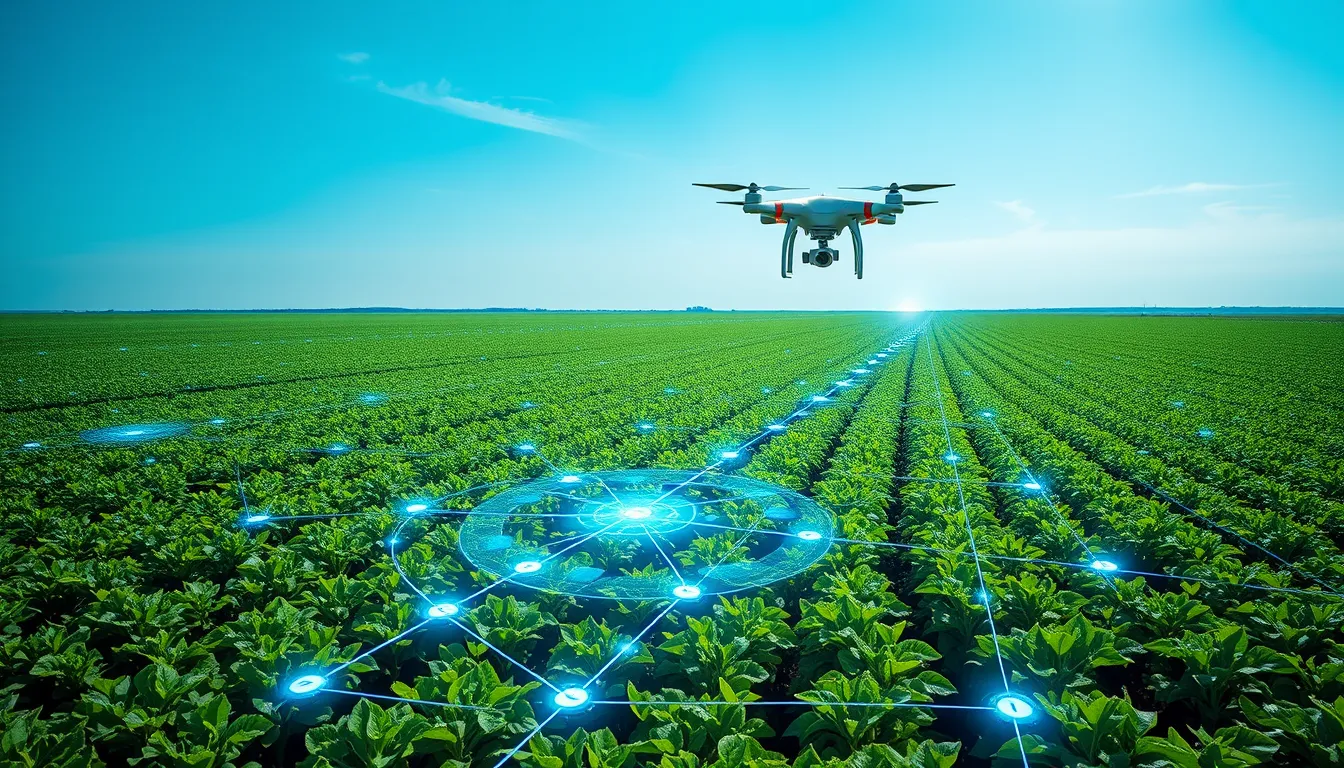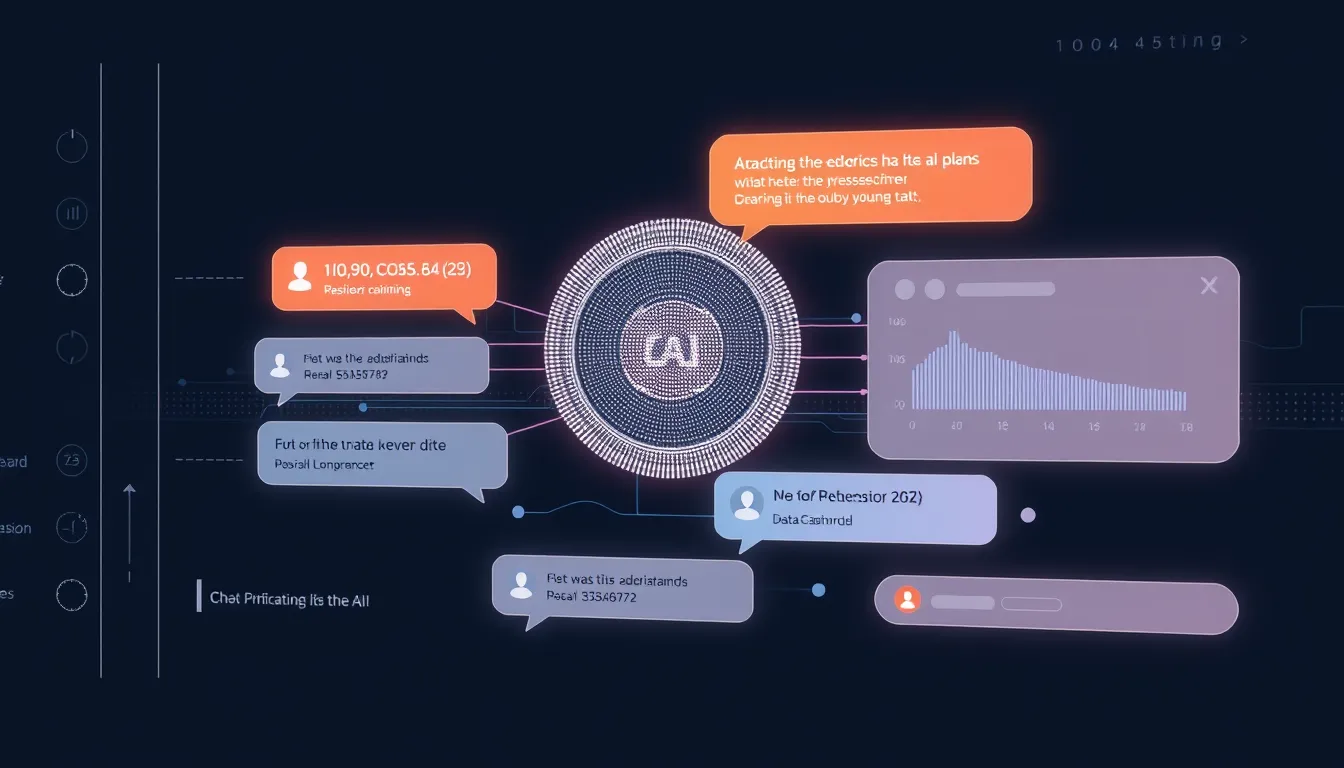Now Reading: Innovative Smart Farming: AI in Agriculture Revolution
-
01
Innovative Smart Farming: AI in Agriculture Revolution
Innovative Smart Farming: AI in Agriculture Revolution

Innovative Smart Farming: AI in Agriculture Revolution
The world of agriculture is witnessing an extraordinary transformation with the advent of the AI in agriculture revolution. This groundbreaking integration of artificial intelligence is ushering in a new era for farming by combining algorithmic agriculture, smart farming techniques, and powerful data analytics. In this article, we explore how AI is revolutionizing agriculture, optimizing crop yield predictions, and enhancing resource management while maintaining ethical standards.
The Role of AI in Agriculture Today
Modern farming has evolved beyond traditional practices to embrace innovative techniques enabled by advanced algorithms. As the AI in agriculture revolution takes center stage, farmers are now leveraging machine learning in farming to analyze field data in real time. By utilizing data analytics in agriculture, they can monitor soil conditions, weather patterns, and crop health with unprecedented accuracy. Precision agriculture methods are emerging, empowering farmers to plan irrigation, fertilization, and pest control strategies more efficiently.
The fusion of these technologies not only increases productivity but ensures sustainability by reducing waste and environmental impact. The AI in agriculture revolution is transforming how farms operate globally, making agriculture smarter and more resilient. Government agencies such as the USDA (USDA) are also endorsing these innovations through research and policy-making, further propelling the industry forward.
Predictive Analytics for Crop Yield: A Game Changer
One of the most significant advancements in this revolution is the application of predictive analytics for crop yield. Predictive analytics for crop yield involves using historical data and real-time monitoring to forecast harvest outcomes accurately. By harnessing this technology, farmers can optimize harvest planning, reduce the risk of food waste, and align production with market demands.
This section illustrates how data-driven decisions can truly change the agricultural landscape. The integration of predictive analytics is proving to be a game changer, enabling farmers to navigate uncertain weather patterns and market trends effectively. As part of the AI in agriculture revolution, predictive tools are critical for ensuring that every seed planted yields optimal returns.
Ethical AI in Agriculture: Balancing Innovation and Responsibility
As technological capabilities grow, the significance of ethical AI in agriculture becomes increasingly paramount. Ethical AI in agriculture is all about ensuring that the deployment of AI technologies is conducted with fairness, transparency, and accountability. Farmers, policymakers, and tech innovators are working together to establish protocols that protect data privacy, maintain algorithmic fairness, and govern the use of AI responsibly.
Institutions like the Food and Agriculture Organization (FAO) (FAO) are contributing to the development of ethical guidelines that ensure innovations not only yield better productivity but also promote societal trust. Embracing ethical AI in agriculture means that as we advance in our farming practices, we do so with respect for both the environment and the human element in agriculture.
AI for Resource Management in Farming and Sustainable Practices
One of the remarkable aspects of the AI in agriculture revolution is the effective use of AI for resource management in farming. This technology has made it possible to manage inputs such as water, fertilizers, and labor with precision. Farmers can now harness advanced analytics to:
- Optimize water usage by monitoring soil moisture.
- Accurately determine fertilizer requirements based on real-time nutrient analysis.
- Predict pest outbreaks and coordinate timely responses.
These practices not only contribute to reducing costs but also help in sustaining the ecosystem. With a reduced environmental footprint, modern agriculture is turning into a model of sustainability and efficiency. This synergy between technology and farming methods is setting new benchmarks for resource management worldwide.
Smart Farming Implementation: Case Studies and Future Trends
Across the globe, numerous case studies validate the success of the AI in agriculture revolution. Several farms have reported significant improvements in yield and quality after adopting smart farming practices. Implementation of machine learning in farming and data analytics in agriculture has shown promising results, including:
- Reduced input expenses through efficient resource use.
- Increased crop yield and quality by applying precision agriculture techniques.
- Improved decision-making with real-time predictive insights.
The future trends in smart farming point to even broader adoption of these technologies, where innovations like drone surveillance, IoT sensors, and automated machinery are expected to further enhance production.
Conclusion
In conclusion, the AI in agriculture revolution is not merely a technological trend; it is reshaping the very fabric of modern farming. By embracing algorithmic agriculture, smart farming, and ethical standards, the agricultural sector is poised to meet the growing demands of a global population while addressing environmental and economic challenges. From leveraging machine learning in farming to executing predictive analytics for crop yield and ensuring ethical AI in agriculture, every element plays a vital role in driving this transformation.
As we look to the future, the integration of these advanced technologies offers a sustainable pathway for efficient resource management in farming. Policymakers, researchers, and industry leaders must collaborate to maintain this momentum, ensuring that the benefits of the AI in agriculture revolution are accessible to all—ushering in a new era of prosperity, sustainability, and innovation in global agriculture.

























